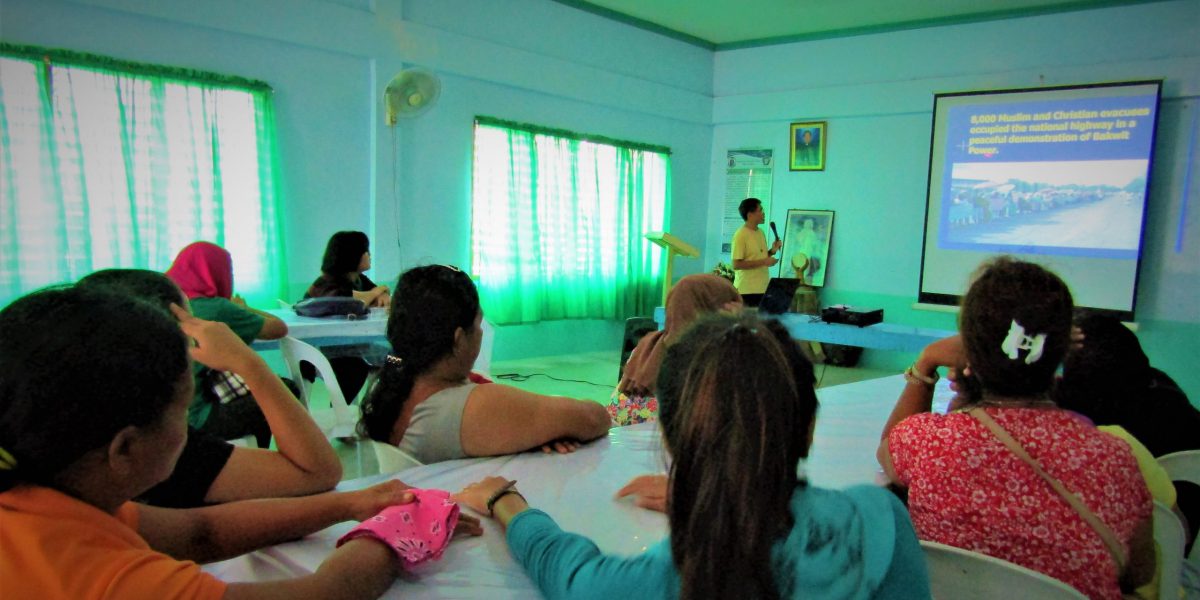Philippines: Muslim and Christian Women Peace Advocates Come Together in Lanao del Norte
29 June 2018

North Cotabato, 29 June 2018 – In the Philippines, the island of Mindanao has been the theater of centuries of conflict between Muslims and Christians resulting in mutual distrust and prejudice. Muslims commonly have looked at Christians as land grabbers. Christians have branded Muslims as criminals.
In Lanao del Norte, a city on the island of Mindanao, Philippine Jesuit Refugee Service (PJRS) created Women Advocates for Peace (WAP). Moro (Muslim population) and non-Moro Women were chosen to be peacebuilders in their respective communities. Unfortunately, WAP’s mission was hampered by the innate distrust and prejudice that continued to exist among the women.
This distrust was addressed in December 2017 during an exchange visit in North Cotabato. The highlight of the visit was a presentation by Inter Religious Dialogue personnel and volunteers. The WAP then had the opportunity to reflect and share, to broaden their network and knowledge on peacebuilding. WAPs listened to peacebuilders about their experiences and their untiring commitment for peacebuilding. As a result of the presentation, the WAP learned how Muslims and non-Muslims can work together to resolve conflict and to build peace in their communities.
The WAP shared their feelings honestly for the first time. One of the Christian WAP said that she was hurt by the reactions of her Muslim colleagues upon entering a church in North Cotabato. She added that in her community, her Muslim neighbors do not have reservations about entering churches or about Christians entering mosques. In response, Muslim members of WAP apologized. They said that they were not used to seeing churches since their communities are entirely Muslim. As a result of this sharing, Muslim and Christian WAP reconciled and understood each other. The exchange visit taught the WAP to address their innate prejudices and biases towards each other.
Ronald Lida, project Director of PJRS said, “Before the exchange, the WAP was not openly engaging with each other. A lot of reservations remained because of cultural and religious differences. Reflecting together and exchanging views was a good way to break the imaginary wall that was dividing the members of the WAP.”


